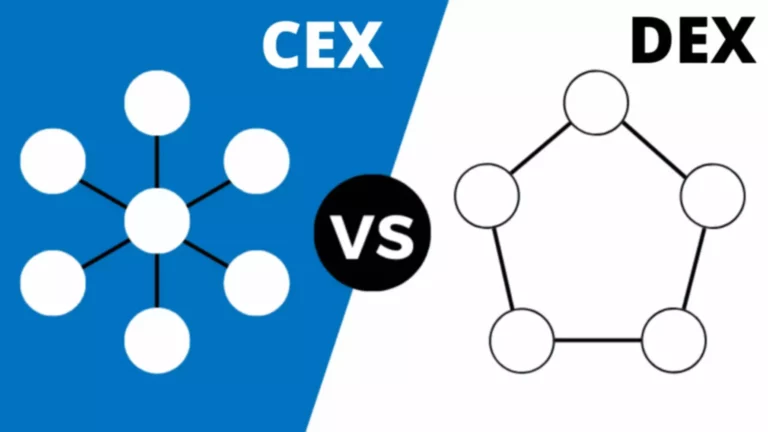Content
Instead, the blockchain consists of transactional records that details which private and the public key has control over the funds. Non-custodial wallets are the types of wallets that put you in control of your own data. These are often the preferred wallet type among crypto enthusiasts because they don’t involve a third party to https://www.xcritical.com/ secure your private keys. Crypto wallets hold the private keys to your cryptocurrency and keep them safe.
Not Sure What a Public or Private Key Is?
Once you create the account, you can download the wallet from your device’s application store and log in using the same credentials. Let us know in the comments below and, as always, thank you for reading. These would-be millionaires can’t do anything but tear their hair out, as there’s literally no way to access their digital fortunes without the keys. If it’s a software wallet, find the download section on the website and select the appropriate version for your operating system. After downloading the wallet software, follow the installation instructions provided by the wallet provider. More and more cryptocurrencies Digital asset management are being added all the time, however, to check which coins they support, you can click the link here.

How Much Is $1 Bitcoin in US Dollars?

A crypto wallet is one of the most essential tools for anyone looking to interact with the blockchain. In this guide, I’ll dive into the different types of crypto wallets, how do crypto wallets make money highlighting their unique features and benefits. Blockchain.com’s DeFi Wallet is one of the more secure wallets available, but it is still susceptible to malware, viruses, trojans, or programming errors. For the best security, cryptocurrency keys should be stored offline in a cold wallet. Technically, that’s not what happens – your cryptocurrencies are never stored INSIDE of your wallet. Instead, what your wallet actually houses are the private keys used to access those cryptocurrencies – the coins themselves are always located on the blockchain.
How Cryptocurrency Wallets Work
Because a third party manages your crypto, they also control your crypto keys. This means that if the company goes out of business or is hacked, your crypto could be at risk. Cold wallets are essentially thumb drives or another type of hardware device. “Once you have one, you simply transfer your coins from your hot wallet to your cold wallet,” Edelman says. Custodial and non-custodial wallets have various pros and cons that make them suitable for different types of users. Popular multi-chain wallets include Trust Wallet, Klever Wallet and Exodus, each offering unique features and support for multiple blockchains, therefore, hundreds of cryptocurrencies.
- Without it, you wouldn’t be able to access your funds in the real world.
- Whereas the wallet in your pocket or bag holds your cash, cards and some odds and ends, a cryptocurrency wallet holds the information you need to access your crypto.
- As a cryptocurrency investor, it’s important to choose a wallet solution that matches with your technical skills and investing goals.
- On the flip side, this means that users must be in charge of their own security with regard to the storage of passwords and seed phrases.
- Blockchain works with a public key infrastructure model for cryptography.
Custodial and Non-Custodial Crypto Wallets
So, now that you know the different wallet types, along with their levels of convenience, I am now going to talk about how secure they are. Generally speaking, no matter which wallet you use, if somebody has access to your private key, then they have access to your funds. However, the key question is what safeguards are in place to prevent it from happening. This is a physical device that has the sole purpose of storing your private and public crypto keys within the hardware.
BitDegree aims to uncover, simplify & share Web3 & cryptocurrency education with the masses. Join millions, easily discover and understand cryptocurrencies, price charts, top crypto exchanges & wallets in one place. The wallet provider never has access to your private keys, nor are they connected to the Exodus servers.

Some examples of cryptocurrency wallet makers include Exodus, Ledger, and Coinbase. These two keys are all that stand between owning crypto and not owning it. It also explains why there are so many stories of people buying Bitcoin or whatever but not being able to cash in because they lost either their public or private keys — or even both. If you ever decide to buy cryptocurrency, you’ll need a place to keep it, which is where wallets come in. Take some time to play around and explore the wallet interface and its features.
While the Nano S Plus is a bit more affordable,you will need to pay about $149 for the Ledger Nano X. However, if you have a large number of coins, it is well worth the investment. In the future, Web3 wallets will become as essential as having an email today. Human Keys are cryptographic keys derived from what you are, what you know, or what you have. Trusted Execution Environments (TEEs) are secure areas within a main processor that provide a protected spa… There have been many cases of malware disguised as wallets, so it is advisable to research carefully before deciding which one to use.
You hold the private keys that serve as proof of ownership and allow you to authorize transactions. The software within the cryptocurrency wallet is connected directly to the blockchain, so it allows you to submit transactions to the ledger. However, the crypto wallet is the protocol that generates your public and private keys. Without it, you wouldn’t be able to access your funds in the real world. So, the term ‘wallet’ is somewhat of a misnomer, as crypto wallets don’t actually store cryptocurrency in the same way physical wallets hold cash.
A crypto wallet provides a way for users to validate an account balance to provide visibility into how much cryptocurrency the user owns. A crypto wallet enables users to send and receive cryptocurrency transactions — an approach that’s similar in concept to how a traditional bank account enables users to conduct transactions. For many users, a crypto wallet is a primary mechanism for managing cryptocurrency balances. Any of the wallet types described above — hot wallets, cold wallets, hardware wallets, etc. — have multisig versions.
It’s a feature worth considering if you’re looking to minimize risk and strengthen security. Instead, they rely on external servers to verify transaction data, making them quicker to set up and less demanding on your computer’s storage. However, this also means you have to trust those external servers for accurate data.
We are living in an era where digital currencies are becoming more mainstream. For that reason, the flexibility to manage and transact in multiple currencies efficiently becomes more important when selecting the right type of crypto wallet. When users set up a non-custodial wallet, they’ll be asked to write down a 12-word mnemonic phrase, also known as a recovery seed. In addition, they are especially convenient for managing your portfolio from any device with an internet connection.
To send a coin, you enter the recipient’s address in your wallet application, enter your private key, and agree to the transaction fee. To remedy this, the cryptocurrency community has developed methods for storing your keys offline. Most commonly, you’ll hear about hot storage, cold storage, and deep cold storage. Hot storage is any wallet that stores your keys and has an active connection to the internet; this is the most vulnerable method. An example of a hot wallet is the wallet application on your mobile device.

